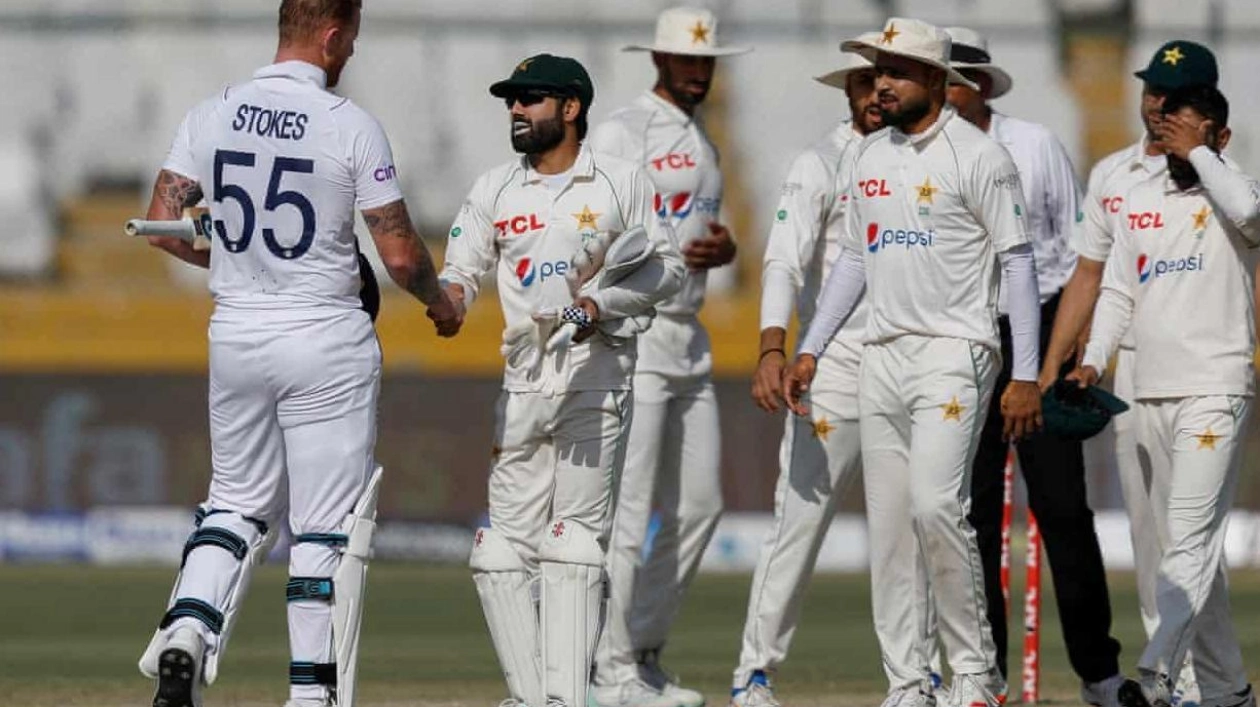When the impending Test series against England was described as “a momentous occasion for Pakistan cricket” by the team’s coach, Jason Gillespie, he was not exaggerating. The players will assemble in Multan on Monday, eager not just to win three cricket matches, but to dispel the lingering odor of chaos and crisis that has increasingly enveloped them. Pakistan has won only three of their last 17 Tests, and if they fail to secure a victory in this series, they will have gone three full years without defeating any team other than Sri Lanka. Following their 2-0 home series loss to Bangladesh this month—the second such whitewash in their history and the past two years, the other being against England during their last visit—they slid to eighth in the ICC’s Test rankings, their lowest position since 1965. They were also eliminated in the group stage of the most recent 50-over and T20 World Cups, suffering a humiliating defeat by the USA in the latter.
Since 2022, the Pakistan Cricket Board (PCB) has seen three chairmen and the Test side has had as many captains, along with six permanent or temporary head coaches. Shaheen Shah Afridi replaced Babar Azam as captain of the T20 team last November but was demoted again after just one series and four months. The PCB is currently led by Mohsin Naqvi, who is also the country’s interior minister, and his appointment has raised rather pointed questions in parliament. “Favourites have been imposed to run a technical sport like cricket. What are Mohsin Naqvi’s qualifications?” questioned Imran Khan, the imprisoned former cricket captain and prime minister, in August. “Nations are destroyed when corrupt and incompetent people are placed into positions of power in state institutions.”
After this year’s T20 World Cup, Naqvi warned that “the team needs major surgery,” but instead, it received only a minor trim, apparently due to a lack of better options. “We don’t have any player pool which we can draw from,” he said, adding that “the whole system [is] a mess.” He has introduced three new domestic tournaments, with squads for the Champions One-day Cup, which concludes on Sunday, selected “80% by AI and 20% using humans.” This event has delayed the Test team’s preparations for the England series, leaving them with an array of freshly polished but largely irrelevant white-ball skills. This echoes the sharp observation made by Shan Masood, their captain, after the defeat by Bangladesh: “You can’t prepare for science and then sit a maths exam. If you’re being tested for maths, you study maths.”
After a series of poor performances and growing discontent this month, the PCB held a “connection camp,” bringing together administrators, coaches, and senior players for open discussions. “Everyone is feeling that the performances of players, and management, can be better,” said Salman Naseer, the organization’s chief executive. “The idea was to sit together, identify issues and what can be better. What is our vision and how do we get there? We openly and candidly accept and identify [problems] and ask for a commitment from each other, demand it, on how we can improve our performances and how we can work together as a team. Our unanimous view was that we need to resolve this and need to identify how we do it.” In essence, they both definitely require change and have no clear idea of what that change should look like. In the meantime, the Test team continues under Masood, who has led Pakistan five times—three games in Australia last winter and the two at home to Bangladesh—and lost every one. The squad for the first Test against England was announced on Tuesday, with few changes.
“We don’t want to have kneejerk reactions to every bad result. We want to show faith and belief in these players because they’re very good players,” Gillespie said. Kamran Ghulam and Mohammad Ali were the two members of the squad for the Bangladesh series to be dropped, causing such an uproar that within 24 hours both had been called up as additional, off-site, “reserve players.” One of the changes Masood has encouraged is his team’s batting approach. In the first innings of their opening game in Australia, the hosts faced 69 more deliveries but scored 216 more runs, effectively deciding the match. “If you score at a significantly lower rate than your opposition then you’ll be way behind in the game,” he said. “We batted 100 overs and they batted 110. That’s not much of a difference but the scoring rate set us back quite a bit. Our target is to hopefully bat at a quicker rate and a decent amount of overs too.”
For England fans, this is a familiar aspiration, but Pakistan is yet to fully embrace, or even partially adopt, the Bazball approach. Their four subsequent matches are all in the top 11 of the teams’ performances in the past five years if ranked by runs per over, but even in this period, they are averaging 3.50 to the 4.57 England has managed under Brendon McCullum. England had been in a sorry state when the New Zealander was appointed in May 2022 and are proof that with a positive vision and the right leadership, even deep funks can clear quickly. Pakistan’s opponents when the series starts next Monday will thus provide them with hope, while also seeking to extinguish it.






